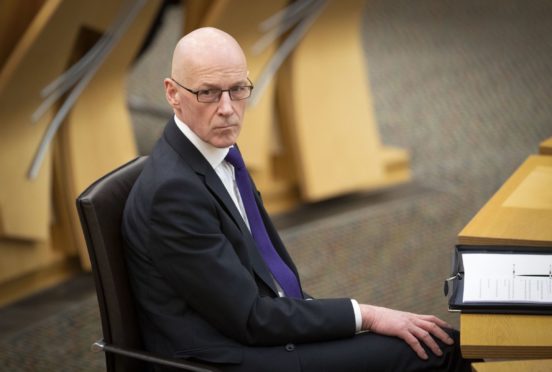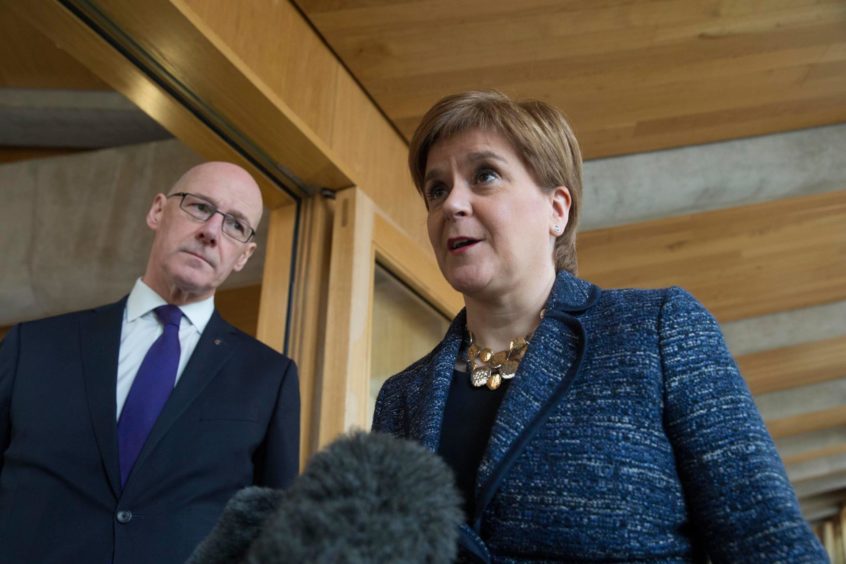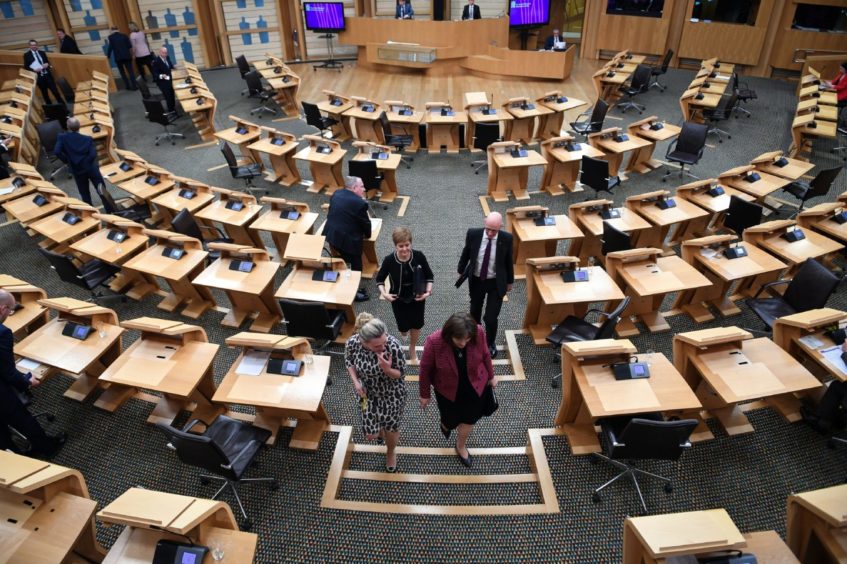“Teflon” John Swinney may have survived another bid to oust him but the experience should serve as a reminder that in the wake of a noxious Salmond inquiry, jobs and reputations are on the line.
Winding up the debate on Wednesday, Scottish Conservative MSP Miles Briggs – whose name the motion of no confidence was in – spoke of meeting Mr Swinney, then an MP, as a primary school pupil growing up in Bankfoot in Perthshire.
“I know that from friends and family who still live in Perthshire, and colleagues across this chamber, including myself, that John Swinney is a respected man,” Mr Briggs said. “But that is not what this debate or motion is about today.”
Instead, the debate was the latest chapter in the story of a probe into a government probe of allegations against a former first minister that has from day one appeared to face an uphill struggle to find any real answers.
The move was triggered by the Scottish Government’s refusal to release advice issued during its legal battle with Alex Salmond, even after two parliamentary votes, and the Conservatives claim it forced the deputy first minister to finally publish.
The party says it decided to push on with the vote of no confidence, even after the documents were made public, because questions remain over how the information was released and whether there should be more of it to come.
Mr Swinney insists the Scottish Government has published everything it has – even as the committee says it needs more – and denies that he released the legal advice simply to save his own job.
But while there will be doubts over why exactly it took the Perthshire North MSP so long to release the advice, there can be little doubt that the vote on Wednesday was intended as a shot across the bow for a government under growing pressure.
Scottish Labour MSP Jackie Baillie has described how in her 22 year parliamentary career she has never been so obstructed, unable to do her job, as she has been during her time on the Salmond committee.
The motion of no confidence may have been in John Swinney, she said, but it is the behaviour of the “secretive” SNP that is “truly outrageous”.
The deputy first minister, who is also education secretary, faced another vote of no confidence last year following a debacle around exam grades for school pupils during the pandemic but also survived as a result of support from the Greens.
Mr Swinney may have escaped the latest attempt on his job but his reputation – and the reputation of his government – have undoubtedly been damaged by the lingering questions hanging over the Salmond saga.


